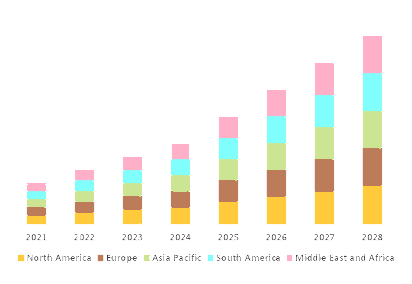Theme:
Obesity Meeting 2022
Conference Series LLC Ltd takes immense pleasure to welcome you all to attend our esteemed conference “24th Global Obesity Meeting” scheduled on March 28-29, 2022 as a Webinar. Innovating potential strategy for fighting obesity is the theme of the conference. We cordially invite all the Speakers and Delegates from across the world to attend “Obesity Meeting 2022” conference and exhibit their knowledge regarding Obesity. Apart from speakers and delegates, our conference includes Keynote presentations, Oral and Poster presentations, Video presentations and E-poster presentations.
Gathering eminent scientists, research scholars, professionals, doctors and students from all around the world for sharing their views and knowledge regarding latest technologies, trends and concerns in the field of Obesity is the major aim of the conference.
Target Audience:
- Endocrinologists
- Obesity specialists
- Bariatric surgeons
- Nutritionists
- Dietitians
- Fitness experts
- Food system professionals
- Drugs and Medical Devices Manufacturing Companies
- Medical Colleges
- Business Entrepreneurs
Track 01: Obesity
In general, being overweight and obese indicates overweight than healthy. Obesity is a chronic disease defined by excess body fat. A certain amount of body fat is needed for energy storage, thermal insulation, shock absorption, and other functions. Obesity is a serious disease that can lead to complications such as metabolic syndrome, high blood pressure, atherosclerosis, heart disease, diabetes, high cholesterol, cancer, and sleep disturbances. In order to diagnose obesity, Body Mass Index (BMI) is often utilized. Treatment depends on cause and severity. For example lifestyle changes like heart-healthy eating and enhancing physical activity.
Track 02: Obesity and Diabetes
Diabetes is defined as the body's inability to regulate and control blood sugar levels. Long-term, persistent high blood sugar is associated with damage to blood vessels, nerves, and several organs. Being overweight or obese increases the chances of developing the common type of diabetes, type 2 diabetes. In this disease, the body makes enough insulin, but the body's cells have become resistant to the beneficial action of insulin. An overweight body with a BMI more than 30 is one of the risk factor for Insulin resistance.
Track 03: Metabolic Syndrome
Metabolic syndrome is a set of risk factors for heart disease that increase your chances of developing heart disease, stroke, and diabetes. The disease is also known by other names, including Syndrome X, Insulin Resistance Syndrome, and Dysmetabolic Syndrome. Many features of the metabolic syndrome are associated with "insulin resistance", which means the body is not utilizing insulin effectively to lower glucose and triglyceride levels. A combination of genetic and lifestyle factors can lead to insulin resistance. Lifestyle factors include eating habits, activity, and possibly interrupted sleep patterns.
Track 04: Childhood Obesity
If the child has a BMI at or more than 95% of their peers then it is considered as Obese. Children in the obese category have gone beyond just being overweight and are at risk for developing a number of chronic health problems. Poor health resulting from childhood obesity can continue into adulthood. Childhood obesity doesn't just affect physical health. Overweight or obese children and adolescents can become depressed and have poor self-esteem and self-esteem.
Track 05: Gastroenterology
Gastroenterology is the study of normal functioning and disease of the esophagus, stomach, small intestine, colon and rectum, pancreas, gallbladder, bile ducts, and liver. It includes common and important conditions such as polyps and colon cancer, hepatitis, gastro esophageal reflux disease (heartburn), peptic ulcer, colitis, gallbladder and pathway diseases. gallstones, nutritional problems, irritable bowel syndrome (IBS) and pancreatitis.
Track 06: Nutrition and Diet
Nutrition and diet play an important role in promoting health and preventing chronic disease. A balanced diet is important because the body's organs and tissues need adequate nutrition to function effectively. Following healthy diet protects against malnutrition and non-communicable diseases like heart disease, stroke, cancer and diabetes. Food habits and choices play an important role in quality of life, health and longevity.
Track 07: Weight Management
Weight control is a term used to discuss the management and maintenance of a healthy body weight. Being at a healthy weight can mean different things to different people. Body Mass Index (BMI) is the traditional way to calculate the body weight. Diet, genetics, medications, environmental factors etc. are some of the factors which contribute to a person’s weight.
Track 08: Eating Disorders
Eating disorders are mental disorders related to eating behaviors that have a negative impact on physical and mental health. Most eating disorders primarily involve focusing too much on weight, body shape, and food, which leads to unsafe eating behaviors. These behaviors can have a significant impact on a body's ability to eat properly. Eating disorders can damage all systems in the body and lead to other illnesses.
Track 09: Endocrinal and Hormonal Obesity
Hormones are the chemical messengers which regulates body’s processes. Leptin and insulin, sex hormones etc. influence our appetite, body fat distribution as well as metabolism. Obesity is associated with endocrine diseases such as polycystic ovarian syndrome, hypothalamic disorders, hypothyroidism, central hypothyroidism etc. According to the endocrine condition, the mechanisms for the development of obesity vary.
Track 10: Obesity during Pregnancy
Being overweight during pregnancy leads to complications such as gestational hypertension, gestational diabetes, obstructive sleep apnea and preeclampsia. Also having high BMI (body mass index) during pregnancy enhances the risk such as impaired growth, childhood obesity, birth defects and childhood asthma for a baby. Exercise, behavioral modification and dietary control are the primary weight management strategies during pregnancy.
Track 11: Non-Surgical Treatment for Obesity
Apart from weight loss surgeries, obesity treatment includes physical activities, weight-loss medication and dietary changes. Usually, non-surgical treatments are effective in inducing the weight loss only if the treatments are continued for longer time. Gastric balloon is one of the best non-surgical weight loss procedures which is minimally invasive to the body.
Track 12: Genetic Obesity
Like many other medical conditions, obesity is the result of an interaction between environmental and genetic factors. Although genetic deficiencies are currently considered rare, variations in these genes can predispose to common obesity. Rarely, obesity occurs in families with a clear hereditary pattern caused by changes in a single gene. The gene most often involved is MC4R, which encodes the melanocortin 4 receptor.
Track 13: Current Research on Obesity
Worldwide, at least 2.8 million people die annually as a result of being overweight or fat. Overweight and obesity cause undesirable metabolic effects on blood pressure, sterols, triglycerides and resistance to hypoglycemic agents. The risks of coronary heart disease, stroke, and type 2 diabetes steadily increase with an increase in body mass index (BMI), a measure of weight for height. A high body mass index will also increase the risk of cancer of the breast, colon, prostate, mucous membranes, excretory organs, and gallbladder.
During the forecast period 2021-2026, the global Obesity Treatment Market is expected to grow. Increasing rate of obesity and chronic diseases is enhancing the necessity of weight loss programs and obesity management. Rising health concern, high disposable income and technological advancements are the three major factors that are driving the growth of this market. Based on dietary supplements, fitness and surgical equipment’s, services and geography, the global weight loss and obesity market is segmented.
Global weight loss and obesity management market by 2028
In the past few years, the Weight Loss/Obesity Management market experienced a growth of 0.029095877805; the global market size of Weight Loss/Obesity Management reached 132340.0 million USD in 2020. In 2025, with a CAGR of between 2020-2025, it is predicted that the obesity management/ weight loss market size will reach 165490.0 million USD.
To share your views and research, please click here to register for the Conference.
To Collaborate Scientific Professionals around the World
| Conference Date | March 28-29, 2022 | ||
| Sponsors & Exhibitors |
|
||
| Speaker Opportunity Closed | Day 1 | ||
| Poster Opportunity Closed | Click Here to View | ||
Useful Links
Special Issues
All accepted abstracts will be published in respective Our International Journals.
- Journal of Obesity & Weight Loss Therapy
- Journal of Obesity and Metabolism
- Journal of Public Health and Nutrition
Abstracts will be provided with Digital Object Identifier by


